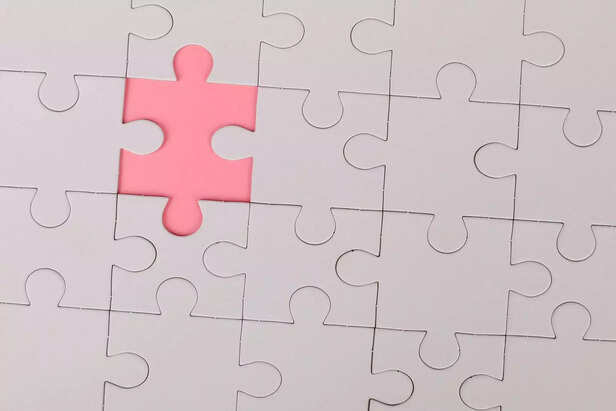The Gita Won’t Tell You ‘You’re Enough’. It Will Ask You Why You Forgot You Were
Riya Kumari | Jun 01, 2025, 20:20 IST
So there I was, having a full-scale emotional meltdown on a Wednesday (because Tuesdays are too early and Thursdays are too hopeful), sobbing into my cold brew and wondering, yet again, why life feels like a group project where I’m the only one showing up. And as I doom-scrolled through the usual parade of “You Are Enough” Instagram quotes and digital chakra realignments, I couldn’t help but think— What if I’m not?
There’s a particular kind of ache that modern life manufactures. It’s not loud. It doesn’t scream or slam doors. It just hums quietly beneath your day—through your to-do lists, your WhatsApp replies, your distracted scrolling at midnight. It’s the ache of forgetting. Not facts or faces. But yourself. And if you’ve ever caught yourself mid-scroll, staring at a pixelated quote telling you, “You are enough,” and wondered why it doesn’t quite land—why it feels like a bandage on a leak you can’t locate—then maybe it’s time for a different kind of reminder. Not from a reel. From The Bhagavad Gita.
THE DIFFERENCE BETWEEN COMFORT AND CLARITY

We live in a world that is obsessed with comfort. We seek it in food, in entertainment, in conversation. Even in healing. Especially in healing.
“Don’t worry.”
“You’re doing fine.”
“You’re enough.”
These are the lullabies of a world that means well—but often leaves us asleep at the wheel of our own lives.
The Gita doesn’t comfort. It clarifies. It doesn’t tell Arjuna, the warrior on the verge of collapse, “You’re okay.” It says: Remember who you are. Not who you're trying to be. Not who they expect you to be. But the part of you that existed before you got lost in performance, pressure, and panic. It’s not gentle. But it’s deeply kind.
ON FORGETTING AND REMEMBERING

We don’t forget who we are all at once. We forget in fractions. A compromise here. A silence there. A moment where we ignore the quiet nudge in favor of fitting in, pleasing others, staying safe. The Gita isn’t trying to give you strength. It’s pointing at the strength that never left.
It asks you:
“Why are you hesitating to live the life you were built for?”
“Why are you standing still in the name of peace, when truth itself is asking you to move?”
It doesn't shame you for forgetting. It simply won’t let you pretend you never knew.
EFFORT WITHOUT ATTACHMENT: THE LOST ART

One of the most radical ideas the Gita offers is this: You’re entitled to your effort, not the outcome. In a world where our worth feels glued to metrics—grades, salaries, likes, callbacks—this feels not just countercultural, but almost absurd. But pause for a second. What if you gave your best, not because it would win applause, but because it’s what you do when you’re aligned with your purpose? What if you showed up fully, knowing the result isn’t yours to control?
This isn’t passivity. It’s responsibility without obsession. It’s discipline without desperation. It’s the kind of effort that’s free, because it isn’t being held hostage by reward.
YOU'RE NOT LOST. YOU'RE DISCONNECTED

Here’s what the Gita reminds you, without saying it in Instagram font: You’re not broken. You’re just unplugged. We live in a time where self-worth is treated like a currency—something you earn, prove, or post. But the Gita doesn’t entertain that. It looks you in the eye and says: “You are not this mind, this role, this chaos. You are something far deeper.”
And that’s why it doesn’t hand you affirmations. It hands you responsibility. The responsibility to ask better questions. To stop outsourcing your identity to your circumstances. To stop waiting for a sign to begin when your breath, your conscience, your discomfort are the sign.
SO WHAT DO WE DO WITH THIS?

You don’t have to become a sage. Or read the Gita cover to cover. But you can ask yourself today: Where have I been outsourcing my worth? Where have I been delaying what I already know I must do? What part of me have I silenced, in the name of being liked, safe, or successful?
The Gita is not a lecture. It’s a mirror. And most of us are so starved of our reflection, the truth looks unfamiliar when we first see it. But once you do, it’s hard to go back to sleep.
IN CLOSING:
The Gita won’t flatter you. It won’t hold your hand and tell you that you’re perfect as you are. Because you’re not perfect as you are. You’re more than that. You are truth, temporarily disguised as fear. You are clarity, buried under convenience. You are courage, waiting beneath the weight of delay.
And when you’re finally ready to remember, it won’t shout. It will simply ask: “Are you done pretending you forgot?” And that might be the beginning of everything.
THE DIFFERENCE BETWEEN COMFORT AND CLARITY

Truth
( Image credit : Pexels )
We live in a world that is obsessed with comfort. We seek it in food, in entertainment, in conversation. Even in healing. Especially in healing.
“Don’t worry.”
“You’re doing fine.”
“You’re enough.”
These are the lullabies of a world that means well—but often leaves us asleep at the wheel of our own lives.
The Gita doesn’t comfort. It clarifies. It doesn’t tell Arjuna, the warrior on the verge of collapse, “You’re okay.” It says: Remember who you are. Not who you're trying to be. Not who they expect you to be. But the part of you that existed before you got lost in performance, pressure, and panic. It’s not gentle. But it’s deeply kind.
ON FORGETTING AND REMEMBERING

Piece
( Image credit : Pexels )
We don’t forget who we are all at once. We forget in fractions. A compromise here. A silence there. A moment where we ignore the quiet nudge in favor of fitting in, pleasing others, staying safe. The Gita isn’t trying to give you strength. It’s pointing at the strength that never left.
It asks you:
“Why are you hesitating to live the life you were built for?”
“Why are you standing still in the name of peace, when truth itself is asking you to move?”
It doesn't shame you for forgetting. It simply won’t let you pretend you never knew.
EFFORT WITHOUT ATTACHMENT: THE LOST ART

Free
( Image credit : Pexels )
One of the most radical ideas the Gita offers is this: You’re entitled to your effort, not the outcome. In a world where our worth feels glued to metrics—grades, salaries, likes, callbacks—this feels not just countercultural, but almost absurd. But pause for a second. What if you gave your best, not because it would win applause, but because it’s what you do when you’re aligned with your purpose? What if you showed up fully, knowing the result isn’t yours to control?
This isn’t passivity. It’s responsibility without obsession. It’s discipline without desperation. It’s the kind of effort that’s free, because it isn’t being held hostage by reward.
YOU'RE NOT LOST. YOU'RE DISCONNECTED

Identity
( Image credit : Pexels )
Here’s what the Gita reminds you, without saying it in Instagram font: You’re not broken. You’re just unplugged. We live in a time where self-worth is treated like a currency—something you earn, prove, or post. But the Gita doesn’t entertain that. It looks you in the eye and says: “You are not this mind, this role, this chaos. You are something far deeper.”
And that’s why it doesn’t hand you affirmations. It hands you responsibility. The responsibility to ask better questions. To stop outsourcing your identity to your circumstances. To stop waiting for a sign to begin when your breath, your conscience, your discomfort are the sign.
SO WHAT DO WE DO WITH THIS?

Questions
( Image credit : Pexels )
You don’t have to become a sage. Or read the Gita cover to cover. But you can ask yourself today: Where have I been outsourcing my worth? Where have I been delaying what I already know I must do? What part of me have I silenced, in the name of being liked, safe, or successful?
The Gita is not a lecture. It’s a mirror. And most of us are so starved of our reflection, the truth looks unfamiliar when we first see it. But once you do, it’s hard to go back to sleep.
IN CLOSING:
And when you’re finally ready to remember, it won’t shout. It will simply ask: “Are you done pretending you forgot?” And that might be the beginning of everything.
